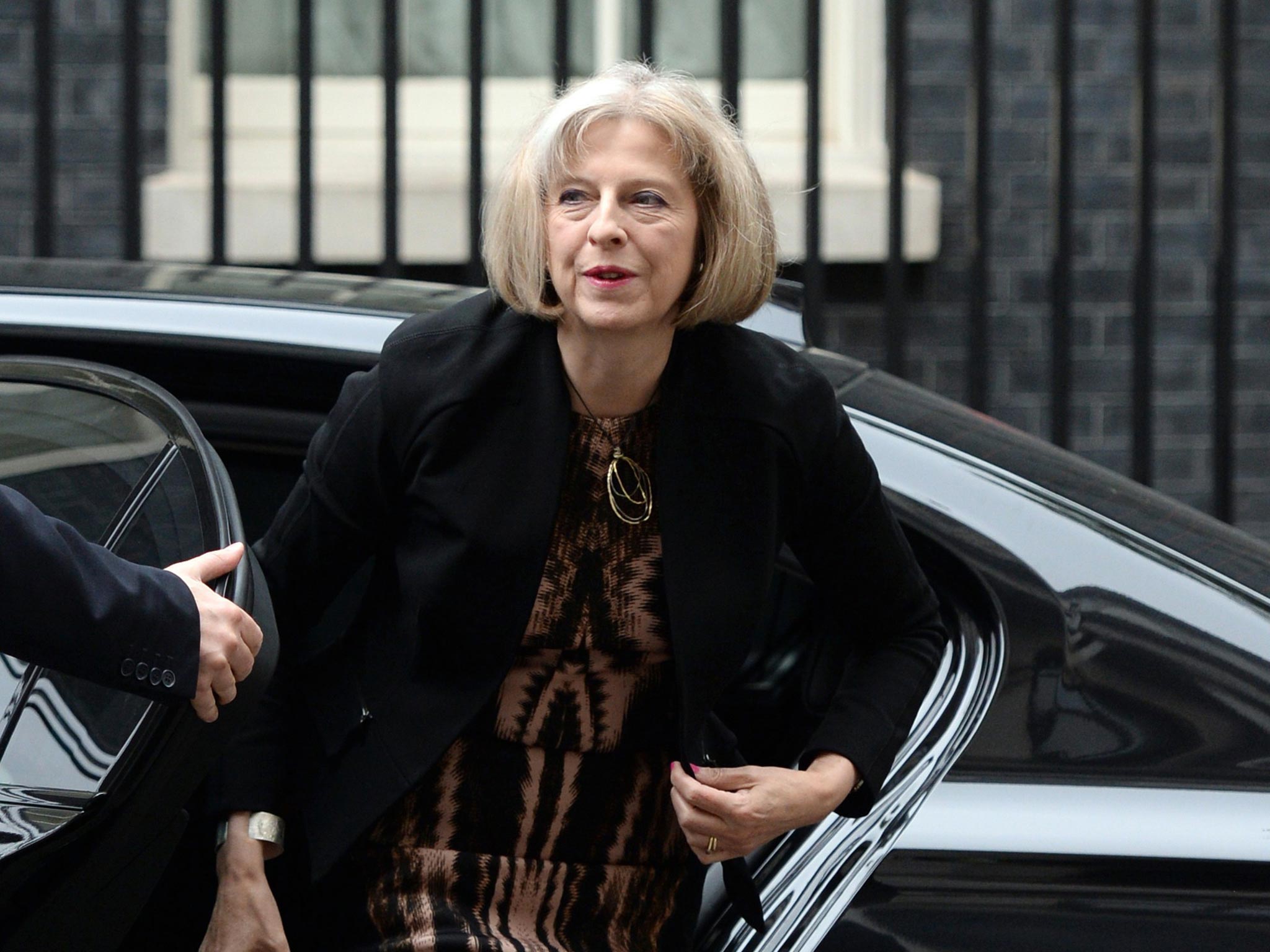It's not hard to imagine Prime Minister Theresa May standing on the steps of Downing Street
Like Thatcher and Blair she knows her own mind, and her appeal is broad


It was getting hot on the top level of Birmingham’s Symphony Hall on Tuesday morning as Tory activists waited for the next conference speech. A man next to me took off his jacket, and his wife waved her fringe programme in front of her face. Stewards told people queuing outside that there were no seats left. As I glanced at Twitter, a male journalist from somewhere in the hall tweeted that the packed, heated anticipation was due to the “Boris Effect” – that the auditorium was full because of the popularity of the Mayor of London. But Johnson wasn’t on for another hour. This was, in fact, the “Theresa Effect”. The buzz was all about the Home Secretary.
I knew it was going to be something special when Alexander Paul, a young black student at Warwick University, came on to introduce her. Despite having never committed a crime, he had been stopped and searched by police 20 times, he told us. When May came on, she told the audience “most of us are white. Most of us are of a certain age”, and there was an uncomfortable shifting in seats. In a week when Ukip defections have tried to drag the Conservative party to the right, it was refreshing to hear a Tory politician stick firmly to the centre ground.
The key announcements from May’s speech were about a tougher line on extremism and terror suspects, and a return to the “snoopers’ charter” but there was a much bigger story going on. In both onstage charisma and oratory, May looked and sounded more like a Prime Minister, save for David Cameron, than any other present-day British politician, male or female.
During May’s speech, photographers leaned onto the stage to get a shot of May’s shoes. But who cares what she was wearing on her feet? It was what she was saying that was captivating. May quoted a beautiful passage from the Koran, something I doubt any Tory Cabinet minister has ever done on a conference stage, but in criticising the murderous chauvinism of Islamic State for regarding a “woman’s intellect as deficient”, she also sent a message to those in the party who believe she does not have the brains to match Margaret Thatcher. She talked of the “modern liberal state” that is Britain – a wonderful phrase that will have enraged Nigel Farage.
May’s prime ministerial qualities go further than just one conference speech, as good as it was. This was not a sudden, revelatory arriving of her as a leader-in-waiting. Some have regarded her for years as the best candidate to succeed Cameron. But it was the finished product.
The activists loved her in the hall, but, more important, May has something that appeals beyond Tory conference to a broad section of voters. Her background is comfortable: vicar’s daughter, grammar-school educated, yet she does not have the supremely privileged upbringing of Cameron and Osborne, something that puts off many voters, particularly the fabled army of blue-collar workers who backed Thatcher before switching sides to Tony Blair.
She has that other quality that leadership demands: knowing her own mind. This was something Thatcher and Blair both possessed to infuriating extents. May’s self-possession is as clear and cool as the air in Zermatt, where she spends her summer holidays walking the mountains with her husband. In a week when Stella McCartney claimed that strong women were not attractive, May proved the opposite. This self-possession gave her the courage to stand up to Conservative activists in 2002, when she addressed the conference in Bournemouth as Tory chairman, and tell they were the “nasty party”.
Some on the right of the party have never forgiven her for this phrase. They wilfully misrepresented her because they didn’t like being told the truth. In fact, May was warning – three years before Cameron became leader – that the party needed to modernise to become electable. To this day, right-wing Tories attack her for this. And to this day, the Conservatives are still waiting to win an election outright.
May has a tough fight on her hands if she wants to become leader. Osborne has a large band of supportive and loyal MPs, while May is often said to be “unclubbable”. But if she can win enough support to get her into the run-off ballot of Tory activists, I believe she would beat Osborne.
Then there is the Mayor of London. To me, Boris Johnson is the George Clooney of British politics, and by that I mean I don’t see what all the fuss is about. Johnson is a very funny speechmaker, but he’s not a Prime Minister – perhaps a Deputy Prime Minister in the mould of John Prescott. By contrast, it is not difficult to imagine Prime Minister May meeting President Hillary Clinton at the White House. When Michael Gove, her bitter Cabinet foe, described the Home Secretary as the “Iron Lady” yesterday, it may have seemed insincere. But the next woman to stand on the steps of Downing Street is here.
Join our commenting forum
Join thought-provoking conversations, follow other Independent readers and see their replies
Comments